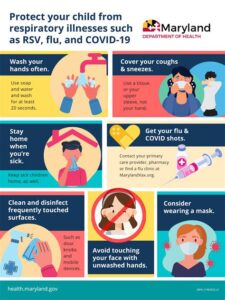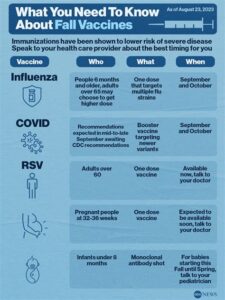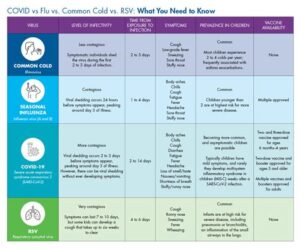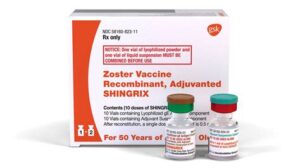Discover essential insights on RSV and COVID vaccine co-administration, guidelines, benefits, side effects, and the importance of consulting your healthcare provider.In today’s ever-evolving landscape of infectious diseases, staying informed about vaccination options is crucial for safeguarding our health. With the emergence of vaccines for both Respiratory Syncytial Virus (RSV) and COVID-19, many wonder whether it’s possible to receive these vaccinations simultaneously. This blog post aims to explore the co-administration of RSV and COVID vaccines, providing vital guidelines for simultaneous vaccination. We will also delve into the potential benefits of getting both vaccines at the same time, discuss possible side effects and risks associated with this approach, and emphasize the importance of consulting a healthcare provider before proceeding. Understanding these aspects can empower individuals to make informed decisions about their vaccination strategies, ultimately contributing to community health. Let’s navigate these key considerations together.
RSV and COVID vaccines co-administration
The co-administration of the RSV (Respiratory Syncytial Virus) vaccine and the COVID-19 vaccine has become a pertinent topic as health authorities seek to maximize immunization efforts. Many individuals wonder if it is possible to receive both vaccines during the same visit, and the answer is generally yes, but there are key considerations to take into account.
The Centers for Disease Control and Prevention (CDC) and various health organizations have provided guidelines that support the simultaneous vaccination for adults and children. The rationale behind this includes increased protection against respiratory illnesses, especially during flu seasons, when both RSV and COVID-19 may circulate concurrently.
Moreover, co-administration has shown potential benefits such as reducing the number of healthcare visits, which is especially advantageous for those with mobility issues or busy schedules. It also ensures broader immunity and could lead to a quicker timeline for community-wide immunity, which is essential in managing public health.
In addition, studies suggest that the immune response generated by receiving both vaccines at the same time is not compromised. This finding alleviates concerns som
Guidelines for simultaneous vaccination
When considering the co-administration of the RSV and COVID vaccines, it’s essential to follow guidelines set forth by health authorities. These guidelines aim to ensure safety and efficacy while maximizing the benefits of immunization against both respiratory diseases.
According to the Centers for Disease Control and Prevention (CDC), individuals may receive the RSV and COVID vaccines during the same visit. However, it’s important to have a conversation with your healthcare provider to discuss your medical history and any concerns you may have.
- Timing: It is recommended to administer both vaccines on the same day but at different injection sites.
- Age and Health Status: Different age groups may have varying recommendations, so consult guidelines specific to your age group.
- Monitoring: Post-vaccination monitoring is advised to manage any immediate side effects that could arise from receiving both vaccines together.
By following these guidelines, individuals can effectively protect themselves from both RSV and COVID while minimizing disruptions in their vaccination schedules.
Potential benefits of getting both vaccines together
Receiving the RSV and COVID-19 vaccines simultaneously can offer several advantages that cater to both individual health and public health considerations. One of the primary benefits is convenience. By co-administering these vaccines, individuals can reduce the number of visits to healthcare facilities, saving both time and resources.
Another significant benefit is the enhanced immunity. When vaccinated against both RSV and COVID-19 at the same time, individuals may strengthen their overall immune response. This simultaneous approach can potentially lead to a more robust defense against these respiratory illnesses, particularly in populations at higher risk, such as the elderly and those with underlying health conditions.
Furthermore, co-administration of these vaccines may help promote higher vaccination rates in the community. The combined approach reduces logistical barriers and increases accessibility, encouraging more people to get vaccinated. This not only contributes to individual health but also strengthens herd immunity, helping to protect those who cannot be vaccinated.
Possible side effects and risks
When considering co-administration of the RSV and COVID vaccines, it’s crucial to be aware of potential side effects and risks. While both vaccines are designed to enhance immunity, receiving them simultaneously can elicit various reactions. Understanding these reactions can help individuals make informed decisions.
- Pain at the injection site
- Fatigue
- Headache
- Muscle aches
- Fever
In some cases, people may experience mild to moderate symptoms when getting both vaccines at the same time. However, serious complications are rare. It’s important to monitor any unusual or severe reactions following vaccination and consult a healthcare provider if concerns arise. Overall, understanding and discussing the risks with a healthcare professional can he
Consulting healthcare provider before vaccination
Before receiving the RSV and COVID vaccines, it is crucial to consult a healthcare provider. They can offer personalized advice based on your medical history, current health conditions, and any medications you may be taking. This consultation ensures that you make an informed decision about your vaccinations.
A healthcare provider can assess your risk factors, such as age, underlying health issues, and previous vaccination reactions. By understanding these factors, they can help determine whether it is safe and beneficial for you to receive both vaccines at the same time. This personalized approach is essential for minimizing the risk of adverse effects and maximizing the effectiveness of the vaccinations.
Additionally, discussing your vaccination plans with a qualified professional will provide an opportunity to address any concerns you may have about co-administration. They can clear up misconceptions and provide evidence-based information, ensuring that
Frequently Asked Questions
Can you receive the RSV and COVID-19 vaccines simultaneously?
Yes, recent studies and guidelines suggest that it is safe to receive both the RSV and COVID-19 vaccines at the same time.
What are the benefits of getting both vaccines at once?
Getting both vaccines at the same time can save you from having to schedule separate appointments, reduce the number of trips to healthcare facilities, and ensure you are protected against both viruses.
Are there any risks associated with receiving the RSV and COVID-19 vaccines together?
While generally safe, some people might experience mild side effects like soreness at the injection site, fatigue, or mild fever. However, serious side effects are rare.
Is there a recommended waiting period between the two vaccines?
Currently, there is no recommended waiting period between receiving the RSV and COVID-19 vaccines; they can be administered during the same visit.
Who should consider getting both vaccines?
Individuals, especially those at higher risk due to age or underlying health conditions, should consider getting both vaccines to protect themselves from severe illness.
Will health insurance cover the cost of both vaccines if given together?
Most health insurance plans cover both the RSV and COVID-19 vaccines, but it’s best to check with your provider for specific coverage details.
How can I find a clinic that offers both vaccines?
You can find a clinic by checking with local health departments, pharmacies, or your healthcare provider’s office, many of which now offer both vaccines.





